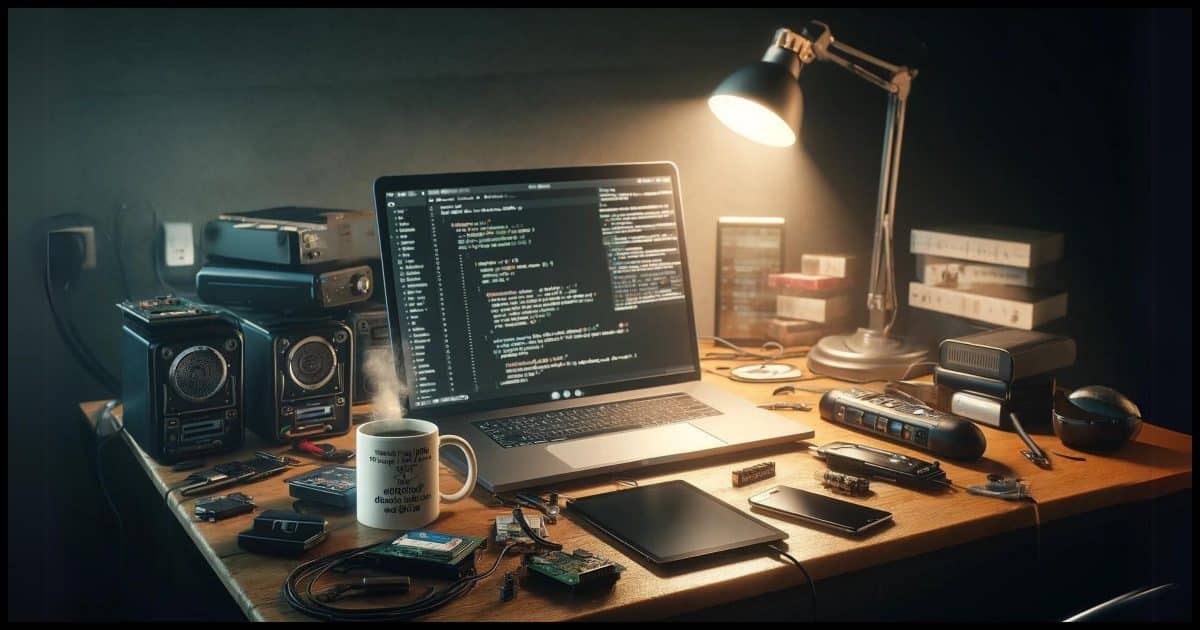How I’m different (in a good way, I hope).

In recent months, I’ve been thinking a lot about the news media and journalism in general.
It dawned on me that while Ask Leo! looks kind of like a news site, it’s not. It also occurred to me that several sites and other tech-support options that operate similarly to Ask Leo! are written and run by actual journalists while hobbyists run others.
None of that is a bad thing. A variety of experiences and opinions is a valuable thing.
But if I’m none of those, what am I?
Become a Patron of Ask Leo! and go ad-free!

What I am
I’m not a journalist. I’m a geek and software engineer with a deep passion for technology. I spent 18 years at Microsoft, writing and managing software development, so I understand how software is made and how it can confuse, fall short, or fail. At Ask Leo!, I combine this expertise with my unexpected love for writing to offer a perspective that differs from most journalists and hobbyists and adds unique value to my readers.
I’m a geek
I’m a geek, nerd, or whatever stereotypical term might apply to someone who enjoys and is fascinated by technology and all it can and promises to do.
Now, on the surface that would put me in the hobbyist category: someone who does something in their spare time because they love it. And that certainly applies.
However, as I’ve said for many years, once I caught the bug, I was blessed to have software and technology become both my job and my hobby.
And that’s where I think I’m a little different from most of the resources you’ll find on the internet.
I’m a software engineer
My formal title was Software Engineer: a person who designs and writes software.
And that’s exactly what I did at Microsoft. For my 18+ years there, I either wrote software or managed people who wrote software.1 Heck, depending on your version of Windows, you may have software that I wrote on your machine right now. (Highly unlikely in recent versions, though, since I think most of my work has been replaced or aged out.)
I think that’s something unique I bring to the table. When I hear about bugs, not only do I understand what they are, I understand why they happen. Hell, I’ve created bugs with coding errors similar to those that lead to many of the vulnerabilities you hear of these days. (Fortunately without any of the massively far-reaching impact some have.) I’ve found and fixed even more bugs since debugging other people’s code is also something I’m fairly good at.
But it wasn’t just at Microsoft. Like I said, it’s a job and a hobby. It’s what I do for fun. 
I’m a Writer
Something interesting happened when I left Microsoft in 2001.
I’ve written about writing before. I hated it in school. But after being in the real world for a while, I realized that it wasn’t the writing I hated as much as writing about things I didn’t care about. That was a lightbulb moment for me. As soon as it became about what I loved, I started to enjoy writing.
Even before I worked at Microsoft, when I was working at a small company as a software engineer, I ended up writing a monthly customer newsletter about what we were doing. At Microsoft (where I was first introduced to email), I became more and more comfortable with the written word, and even produced a couple of published how-to articles2. In a sense, they were forerunners of what was to come.
What came, of course, was Ask Leo!
It started naturally: as the local or resident tech guru, people were asking me questions all the time. I decided to see if the web would be a good place to take those frequently asked questions, publish their answers, and build a business around it.
What followed was writing — lots and lots of writing.
And also lots and lots of software and “playing” with the computers and systems I was using, either directly for the websites I was building myself or for friends and acquaintances.
I’m a jack of all trades, master of… ?
So what does all that mean to people who read my articles, take my courses, or buy my books?
What I bring to the table is the perspective of someone who’s written software, been on and managed large teams of programmers, and knows what can go wrong. I’ve seen the sausage being made. I’ve made some myself.
That’s not something you get from a journalist, and that’s not something you get from a hobbyist.
I’m not saying that their perspectives and opinions are bad, wrong, or irrelevant — not in any way. I’m also not saying that I’m better.
I’m just… different.
And having been and done so many different things over the years, I think that difference adds value.
Hopefully, you agree. :-)
Do this
Subscribe to Confident Computing! Less frustration and more confidence, solutions, answers, and tips in your inbox every week.
I'll see you there!
Footnotes & References
1: While the traditional old-school approach in business is to do something and then get promoted into some form of leadership role or management, never to return, at Microsoft it was OK to go back and forth. And I did. I was good at both, enjoyed doing both, and so alternated between the two.
2: Customizing the Features of the M Editor Using Macros and C Extensions in a 1988 edition of the Microsoft Systems Journal, and Custom Add-Ins Help You Maximize the Productivity of Visual Studio .NET in the 2002 MSDN Magazine.
